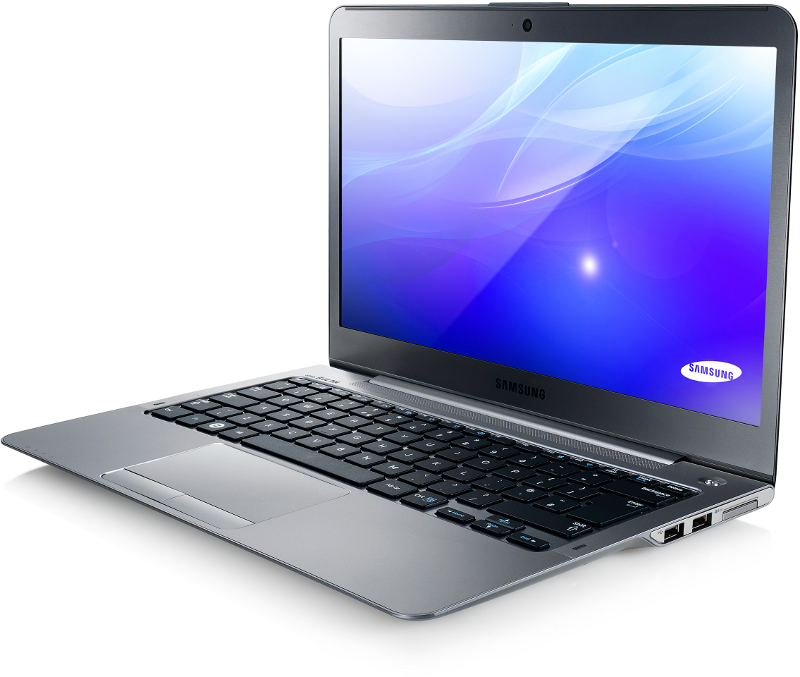I’ve bought a Samsung Series 5 Ultrabook, model NP530U3C-A08IT to be exact, and Italian version.
Its a 13″ laptop, 1,5kg with a 128Gb SSD disk. I received with it another 120 Gb SSD disk, which I have used to install Debian Wheezy, keeping the original disk with a never booted Windows 8 apart.
It is a medium sized laptop, measuring 31,5×29,9×1,7cm (W×D×H).
Conclusions
Most of the hardware works out of the box on a default Debian Wheezy installation.
The spedifications of the laptop (Samsung link)
- Intel® Core™ i5 3317U (1,70 GHz, cache L3 da 3 MB)
- Intel HM76 chipset
- Memory 4 GB DDR3 a 1.600 MHz – 1 SODIMM
- Harddisk SSD 128Gb
- Battery 4 cells 45Wh – circa 4 hours normal use
- Display 13.3″ at 1366×768 (300 nit)
- Touchpad ETPS/2 Elantech
- Realtek 8168 gigabit wired network adapter
- Intel Centrino Advanced-N 6235 wireless network adapter
- Bluetooth 4 integrated
- SD / SDHC / SDXC card reader
- Webcam 1.3Mpixel
What doesn’t work
- Wired network (Realtek R8168) has caused me some trouble, and doesn’t seem to register when there is a link. It did work during install, though.
What works mostly
- Most of the special keys on Fn-XX works, most notably the keys for brighness, video out and sound control, but a few don’t react or send some random character continuously if pressed, These are the settings key on Fn-F1, the fan control key on Fn-F11 and the Wireless kill-switch on Fn-12.
What works
Practically everything without any effort:
- Graphics works with acceleration (intel driver) without any configuration (I use Gnome 3),
- Wireless networking works flawlessly with the necessary firmware installed (iwlwifi driver),
- Sound works without any set up,
- Bluetooth works (pairing, transfer and tethering),
- Battery reports 4 hours usage on a full charge which seems mostly correct,
- Touchpad works (tapping, two-finger scroll, edge scroll),
- Webcam works (tried using the Gnome application Cheese),
- HDMI out works using the Fn-F4 keys to switch output and resolution,
- Card reader works (loading photos from a camera).
I’m very content with my acquisition.
Installation
I installed Debian Wheezy, using the Debian Installer 7,0 RC1.
The laptop being an Ultrabook sold with Windows 8, it is equipped with an UEFI boot system and Secure Boot which allows only operating systems digitally signed (by Microsoft) to boot. Thus, first thing to do is to enter the BIOS (press F2) and disable Secure Boot. I also switched it from UEFI to traditional BIOS boot, as there has been stories about laptops being bricked by booting Linux due to a but in the UEFI implementation of the firmware.
Installation worked fairly smoothly once the BIOS was set up. Booking from a netinst image on a remote DVD drive the only hitch was missing firmware for both the iwlwifi wireless network driver and for the Realtek R8168 wired network driver, but in both cases the installed asked for the specific files needed, and I proceeded to download (on another computer) the firmware Debian packages firmware-iwlwifi and firmware-realtek to extract the relevant files, put them on an USB stick which I then connected to the laptop being installed. The process went smooth and I did the net install using the wired driver (which, however, doesn’t seem to work on the installed system).
The installation target disk was unpartitioned, so I let the installer decide which gave me a root, swap and /home partition.
Various hardware information
- Bootlog – /var/log/dmesg
- Output of lspci
- Output of lspci -v
- Output lspci -v -v
- Output of lsusb
- Output of lsusb -v
- Output of lsmod
X Windows
Basic X.org configuration was automatic.
Links
- Sansung Series 5 Ultra (Italian)
- Samsung Series 5 Ultra specifications (Italian)

Leave a Reply